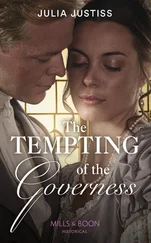Though the exterior of the dwelling looked as dilapidated as the other Blenhem cottages, the dirt-floored interior was tidy, the rough wooden table clean and the hearth freshly swept. But Ned noted with a troubled glance the dampness on the back wall where the rotted thatch must have let the rain in. The old woman herself was far too thin and frail, her eyes large in her emaciated face, veins visible beneath the translucent skin of her parchment-wrinkled hands.
After pouring cider into two earthenware mugs, she offered them a bite of cheese to accompany the beverage. Having already realised with a shock that there appeared to be nothing but the one jug of cider and a single round of cheese in her small larder, Ned sent a sharp look to Martin, who politely refused.
Already angered, dismayed and distressed at the condition of Blenhem and its tenants, Ned left the cottage with an ache in his gut. ‘How does she manage with her son gone?’ he asked Martin abruptly as they climbed back into the gig.
‘I help out some, and the Reverend sends her cheese and ale when he can,’ Martin replied. ‘Poor Dame Cuthbert was another reason I was so glad to see Lord Englemere had sent you! Barksdale threatened to evict her after her son left—cast her out of the only home she’s ever known with no place to go. ‘Twas what drove me to write that letter to his lordship and tell him how things stood here. Praise heaven, he sent Anders and his bully boy packing before Barksdale could make good on his threat.’
‘No wonder she offers you half her victuals.’
Martin shrugged. ‘Only tried to do what was right. Biddy Cuthbert’s a kind soul—good to the bone, no matter what life hands her.’
After returning Martin to his cottage, Ned drove back to the manor, his head filled with facts and faces, his mind simmering with projects and potential remedies. While he planned and figured, his heart ached for the misery and hopelessness of the people he’d visited. He’d see the gaunt face of Dame Cuthbert in his dreams tonight, he thought, his soul still haunted by the image of the old woman on the brink of starvation, offering him the last of her cheese.
After the abject poverty he’d witnessed, as he strode into the manor house he was struck anew by the superior condition of that dwelling. The stone exterior and timbered roof had been recently cleaned and repaired. Within, polished floors shone, fresh paint covered the walls, window panes gleamed, and curtains and upholstery were fashioned from new, finely woven cloth. Though by no means grand, the furnishings of the morning room, dining room, salon and guest bedchamber were stylish and of the highest quality.
Greville Anders certainly had not suffered with the rest of the estate at the downturn in agricultural prices.
A recurring refrain in the tales he’d heard today was the cruelty, indifference and avarice of Anders’s assistant, Barksdale. Ned had first thought that perhaps Nicky’s cousin had left to his agent the distasteful wrangling over crop production and rents so Anders might play the magnanimous gentleman when he rode about the estate. However, it appeared that Anders had turned the day-to-day operations of the estate entirely over to his subordinate, for the tenants reported that they had seldom even seen Mr Anders.
Had Nicky’s cousin been aware of the suffering of Blenhem’s people? Or had he been content to take the money Barksdale extracted from them, neither knowing nor caring about their fate as long as his own home was in good repair, his own rooms elegantly furnished, his own belly well filled?
Ideas and emotions still churning in him, Ned consumed rapidly and in silence the meal Myles served him in solitary state in the dining room, burning with impatience to move on to the estate office so he might compare the estate books Nicky had given him with those kept at Blenhem.
As he cleared away the dinner service, Myles said, ‘I expect, after riding about the estate today, you must be fatigued. Shall I bring brandy to the morning room or will you be retiring immediately?’
‘Retiring?’ Ned echoed. ‘Indeed not! I shall probably sit up late. Please have an extra brace of candles sent to the study.’
By the time Ned arrived in that room shortly afterwards, the books he’d brought with him had been neatly aligned on the desk along with the additional candelabra and a flask of spirits.
Myles wasn’t such a bad sort, despite his taciturn ways, Ned concluded as he took his seat.
Several hours of contemplation later, Ned paused to avail himself of the spirits, both angry and perplexed after his perusal of the records. Nicky’s books, filled with figures that must have been copied by his London secretary from reports sent by Anders, were detailed, neat and orderly. But the Blenhem Hill ledgers not only did not match Nicky’s entries, the numbers varied from nearly illegible to incoherent.
Many expenses were listed simply under general categories like ‘manor house’ and ‘home farms’, tallied in columns that were sometimes incorrectly added—or not totalled at all. The monthly summaries were penned in a different hand entirely.
Exasperated, when the butler entered to refresh his brandy flask, Ned said, ‘I know this isn’t your purview, but would you happen to know who made the entries in the estate books? They appear to be in two different hands.’ He pointed to the open ledger.
After studying the page, the butler said, ‘The figures that are hard to read, here—’ he touched the page ‘—were penned by Mr Anders. The smaller, neater ones here—’ he indicated the summaries ‘—were written by Mr Barksdale.’
As Ned had deduced. Grimly satisfied to have this supposition confirmed by someone familiar with both men, he said, ‘Mr Anders did not keep the books solely by himself, then? He allowed Barksdale access?’
‘To them and everything else at Blenhem,’ Myles replied acerbically.
‘Damnable way to handle the property for which he was responsible,’ Ned burst out, finally losing his grip on his temper after all the indignities he’d witnessed that day.
To Ned’s surprise, Myles’s impassive face creased into a slight smile. ‘Indeed, sir. Overall Mr Anders weren’t a bad sort. Gave himself airs, always reminding everyone he was Lord Englemere’s cousin and puffing off about his service with Wellington. Though if he did as little in the army as he did here, ‘tis a wonder he wasn’t cashiered out! About the only time he exerted himself was when he ordered some doxy sent out from town. Otherwise, he left everything to Barksdale.’
Myles’s smile evaporated. ‘That one wasn’t lazy a bit. Kept a hand in the business of everyone and everything. Had a mean streak in him, too.’
Ned struggled to keep his jaw from dropping. Myles had just opened up like fertile ground under a sharp plough, offering more words in that one speech than Ned had got out of him in the nearly two days he’d been at Blenhem.
Had Myles been subjecting him to some sort of scrutiny which he had successfully passed?
Hoping that was the case and the butler’s candour meant the beginning of a useful working partnership, Ned said, ‘Thank you for the information, Myles. I shall very much appreciate hearing anything you, the staff, or the tenants can tell me about what has been happening here. I mean to make things right, I promise.’
Myles studied him silently for a moment. ‘I believe you do, Mr Greaves. Let me say then how glad I am that Lord Englemere sent you.’
After refilling the flask, Myles withdrew and Ned went back to his work.
By midnight, his rage had revived. The best he could make out, the harvests on every farm had steadily decreased. Yet rents had been raised, sometimes sharply, at every renewal since Anders took over control of the property. The shoddy state of the accounting in the Blenhem books made it impossible to determine exactly what expenses and income had been. The account sent to Nicky in London must have been a pure fabrication.
Читать дальше












